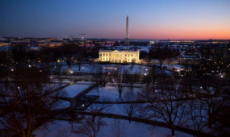>A recent article in the Washington Post described how the current US tax-‘reform’ bill is being shaped; and it describes, basically (at least as far as tax-law changes are concerned), the operation of a US dictatorship by the super-rich.
>First of all, however: there is no longer any realistic question as regards whether the US in recent decades has been a dictatorship, or instead a democracy. According to the only scientific analysis of the relevant data ( https://scholar.princeton.edu/sites/default/files/mgilens/files/gilens_and_page_2014_-testing_theories_of_american_politics.doc.pdf ), that has been done in order to determine whether the US is a dictatorship or a democracy, the US is definitely a dictatorship that’s perpetrated by the extremely richest, against the public-at-large; in other words: the US Government functions as an aristocracy, otherwise referred-to as an oligarchy, or a plutocracy, or a kleptocracy; but, in any case, and by whatever name, it’s ruled by a tiny number of the extremely wealthiest and their agents, on behalf of those few super-rich, against the concerns and interests and needs of the public (everyone else). So: instead of being rule by the public (the “demos” is the Greek term for it), it’s rule on behalf of a tiny dictatorial class, of extreme wealth — by whatever name we might happen to label this ruling class.
>That study, by professors Gilens and Page, explained that it examined “1,779 instances between 1981 and 2002 in which a national survey of the general public asked a favor/oppose question about a proposed policy change,” and it compared those public-policy preferences, by the public, versus the public-policy preferences regarding those same issues, by the super-wealthiest; and, it found that only the public-policy preferences by the super-wealthiest and their paid agents, made any discernible difference, at all, in the likelihood that a given public policy ultimately became enacted into law, in the United States. Whereas the public-policy preferences of the wealthiest do, at far higher than mere random chances, become enacted into laws, the public-policy preferences of the public are (except in political rhetoric and promises — frauds perpetrated to deceive the public) ignored, in the United States.
…
https://archive.is/vfjPF - strategic-culture.org





 Ex: Type :littlepip: to add Littlepip
Ex: Type :littlepip: to add Littlepip  Ex: Type :eqg-rarity: to add EqG Rarity
Ex: Type :eqg-rarity: to add EqG Rarity 